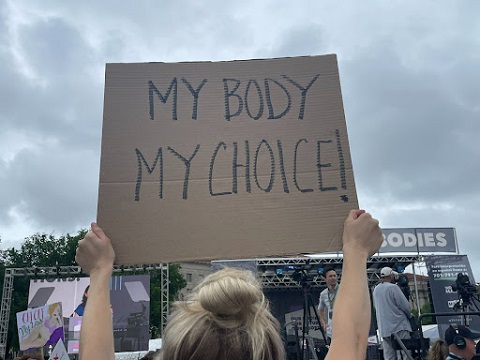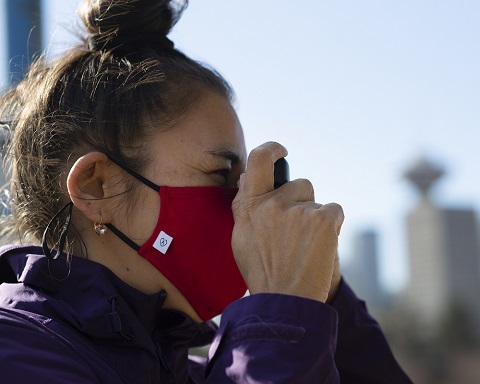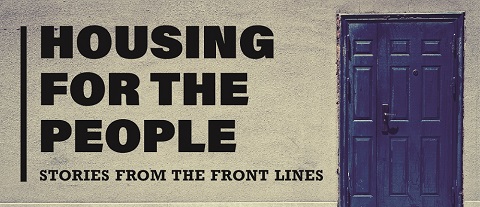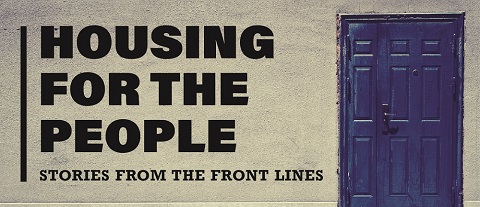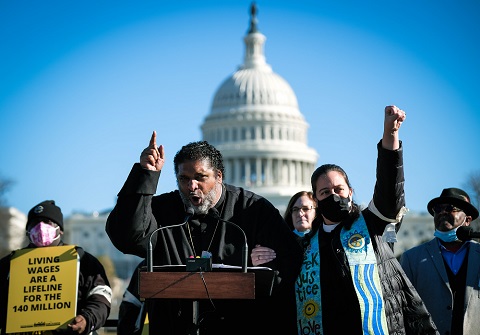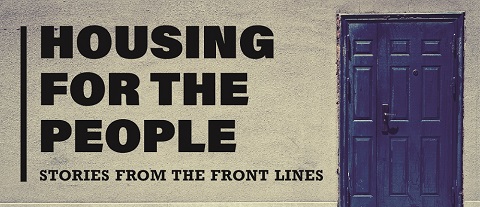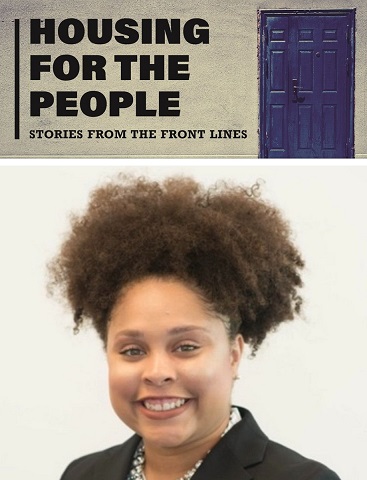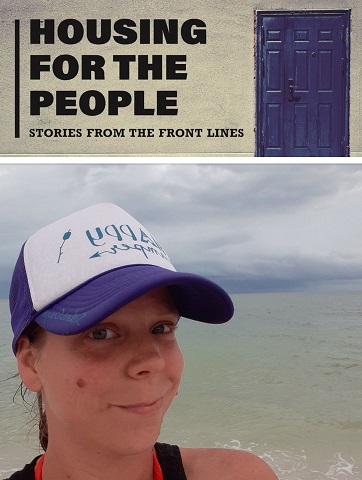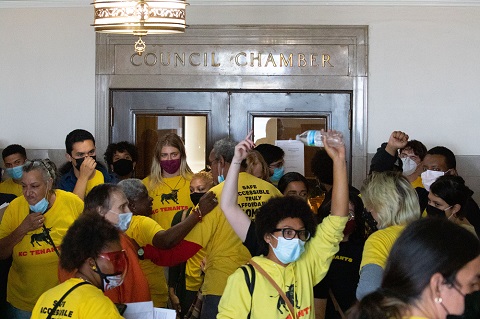What even is a social enterprise?
It’s one of those terms that gets bandied around a lot. You could be forgiven for thinking it’s just an unintelligible buzzword, held up as the great hope to bridge the community, corporate and government sectors.
But, The Big Issue organisation is one. It’s Australia’s longest-standing and most successful social enterprise. In fact, The Big Issue is made up of four social enterprises.
A social enterprise is a not-for-profit program that reinvests into the community it is trying to help. For The Big Issue, that means creating ongoing employment for marginalised people.
When you buy The Big Issue from a street vendor, half the magazine’s sale price goes into the pocket of a person who needs it. The vendor buys the magazine for $3.50 and sells it for $7, earning an income. The other half goes back into our organisation, so that we can support the vendors and produce a magazine for those people to keep selling. Social enterprise.
When you take out a magazine subscription of The Big Issue, your money employs marginalised women to pack and distribute the magazines to subscribers. Social enterprise.
When you bring a school group to The Big Issue Classroom to learn about homelessness and the factors that can lead to marginalisation, it also pays for a person who has experienced homelessness to come and share their story with students. Social enterprise.
When uni students compete in The Big Idea to develop their own social enterprise ideas, the program not only helps develop a new generation of social entrepreneurs, it also creates work opportunities for the Big Issue speakers. Social enterprise.
And so it is for more than 100 street papers around the world that are a part of the International Network of Street Papers (INSP). All of those magazines are social enterprises that work in the same or similar way to The Big Issue. And a lot of those organisations also have other elements of the business that reinvest into their community, such as coffee carts, vendor-led city tours or Valentine’s Day flower deliveries. Beyond the magazines, we’re taking a look at some of these other enterprises that our friends all over the world have created to help people who have experienced homelessness, unemployment or disadvantage.
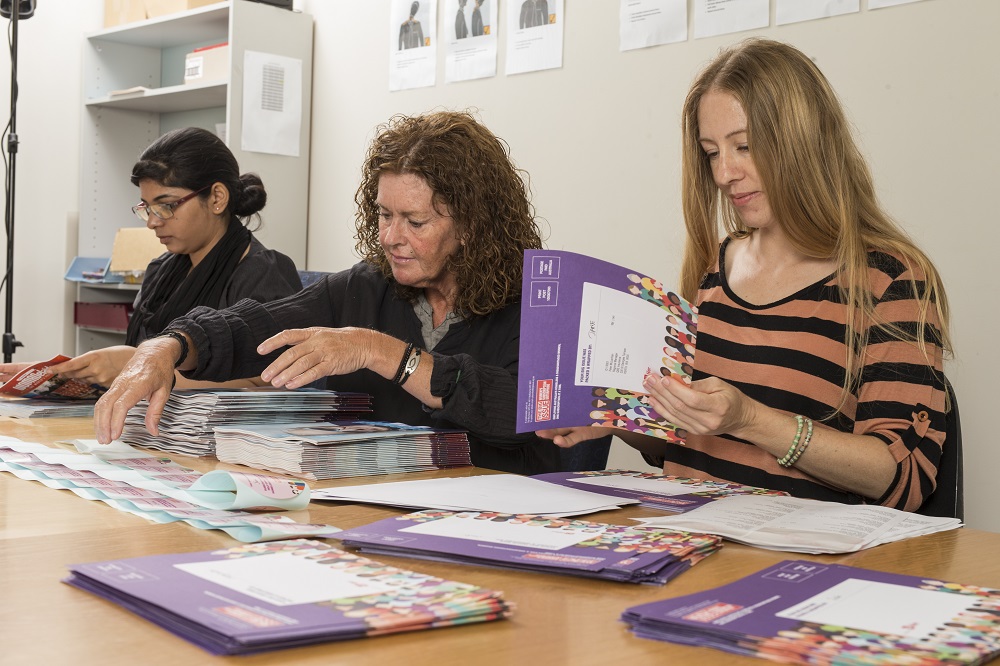
Women’s Subscription Enterprise
The Women’s Subscription Enterprise (WSE) was created in 2010 to provide job opportunities and give support to women who have faced homelessness, trauma or disadvantage. The women package copies of The Big Issue Australia magazine for distribution to subscribers every fortnight, and receive access to training, mentoring and support. The WSE is also contracted for social procurement work, packing and distributing content for other organisations around the country.
Jodi tells us more: “I’ve been here since the beginning. The first shift was exciting. It was a little overwhelming, because we had people from the companies that support WSE there. But afterwards I felt like I’d achieved something. It was a good feeling at the end of the day, and you know that whoever receives their subscription is going to get a perfect magazine.
“It’s daunting to get back in the workforce after being out for a while. I was in an abusive relationship, and out of work for five years. You are told to sell yourself, but it’s hard when they ask you why you were out of work.
“For me, the biggest benefit is working with other women who have had similar experiences as myself. We all seem to understand each other and we all support each other, we don’t judge. That’s helped with my confidence levels.
“There are lots of women from non-English speaking backgrounds, too. It has opened my mind up to the different religions and the unrealistic way the media portrays the Muslim religion.
“There is a friendship and we all care for each other, and if one of us isn’t there, then we all are worried about her.
“My biggest hope would be to use the skills I’ve learned to get into permanent full-time employment and be able to get a private rental.
“People might think it’s just a magazine that they get sent every fortnight, but the impact they actually have on an individual is something that individual will carry throughout their lives. It’s not just the money, it’s the interaction with colleagues and managers – not just the magazines but the third-party work, and dealing with the businesses that help support the WSE. It’s reconnected me to my community.
“The good thing about Perth is that there are so many organisations that are helping us.”
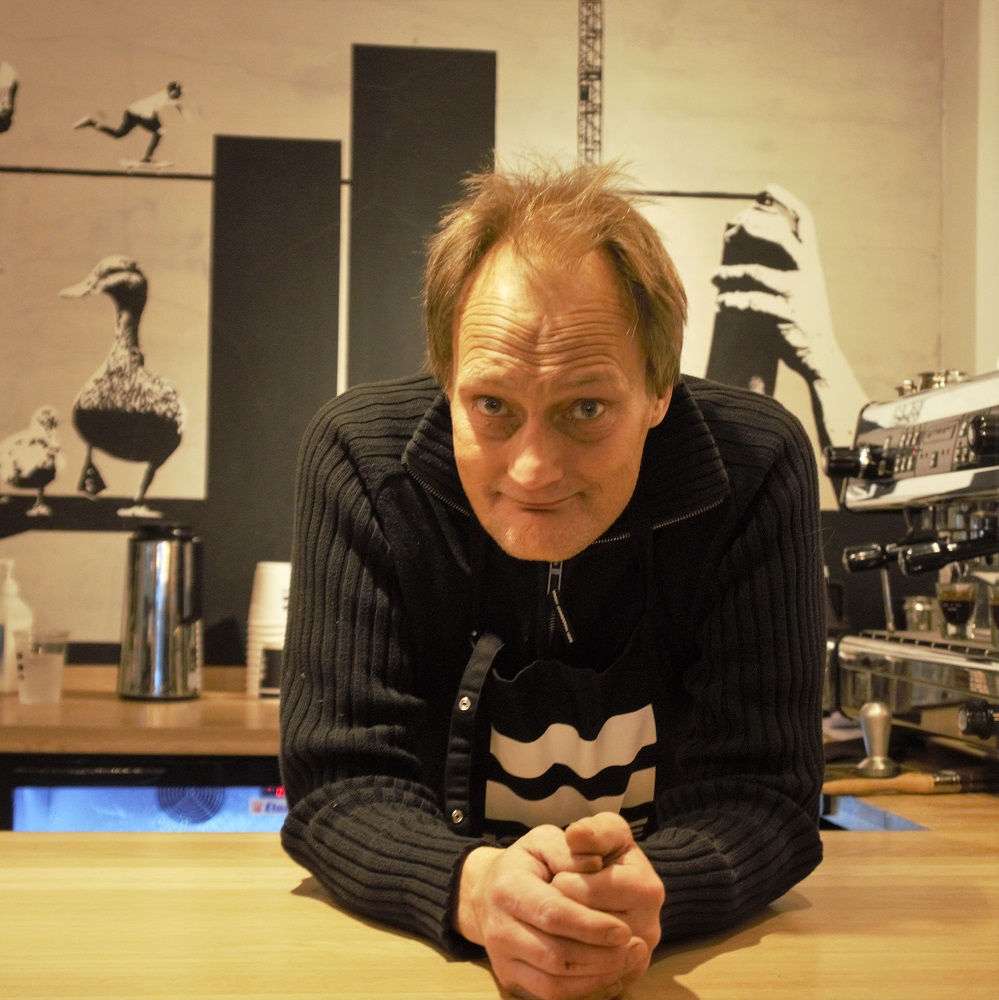
=Kaffe
=Oslo, Norway
=Kaffe is a coffee shop started by the street paper =Oslo. It operates just like all the other coffee shops in the city (on average Norwegians drink 3.6 cups of coffee a day), but the employees have all had experiences of homelessness, addiction or poverty. Most of the staff are former or current vendors of =Oslo.
Christer tells us more: “Working in =Kaffe is very different from selling the magazine. It’s much more like a regular job with regular hours and demands. It gives a great sense of achievement.
“The job has brought me closer to what I really dream of: a quiet, normal life.
“I have learned to make hearts in the milk foam in cappuccinos, haha. And that it feels good to show up at work early in the morning, earn your wages and pay your tax. I didn’t know that.
“Norway is ranked as the happiest country and the best country to live in the world, but still Oslo is considered the heroin capital of Europe. Go figure.
“For the future, I hope to remain drug free, become debt free and learn even more coffee-making skills.”
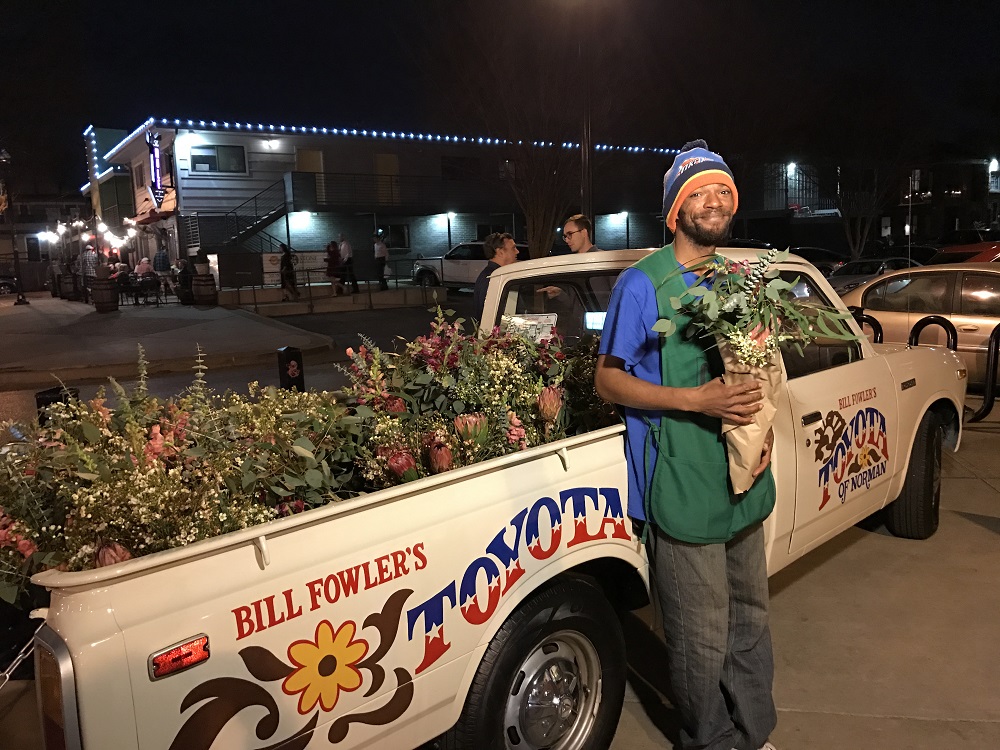
Valentine’s Day Flower Service
Around Valentine’s Day, the vendors of Curbside Chronicle street magazine partner with a local florist to put together floral arrangements. The flowers are trimmed, grouped and wrapped by vendors, and then sold on the streets of Oklahoma City.
Steven tells us more: “It’s fun to get to sell another product in addition to the magazine; it’s a fun way to spread love in our community. People seem to really enjoy purchasing our bouquets and sharing them with their loved ones. They’re beautiful.
“I really enjoy putting the flowers together. It’s very hands on, and I like to work with my hands. Plus, they smell really good all day while we are out selling them. I like selling the magazine too, but people really look forward to our flowers every year, so that’s cool.
“Curbside has been a huge help to get away from the negativity of being on the streets.
“Over the Christmas break of my senior year, I got in a car wreck. I ended up with a shattered hip. From there, things really changed for me. I was a really active person and I planned on joining the military. They told me that my hip disqualified me, so that really threw everything off for me.
“I was homeless for 13 years. It was just like a blanket discrimination. Being associated with the homeless population has a really negative impact. It can get discouraging, not everyone is nice. Now that I’m back in housing, I finally feel like I’m settling into a routine. Having received housing and having a way of making money, I feel like things are on the up.
“I’d like to get into more permanent employment. As long as I can get my financial obligations taken care of and pay child support to take care of my daughter, I don’t really care what kind of work I get.
“I feel like Curbside supports the exact things I was worried about, but I also feel like I’m helping other people. For the most part, it’s been great. I really enjoy dealing with people and spreading the message of hope.
“I’ve always loved talking to people and it’s been really uplifting. It’s been really positive for me, and I haven’t had problems paying my bills each month. If you put in the time throughout the month, you don’t really have to worry. After all these years, it’s nice to see things head in a positive direction. It’s been a real gift, especially after all of the time and effort, to see all of my possibilities now.”
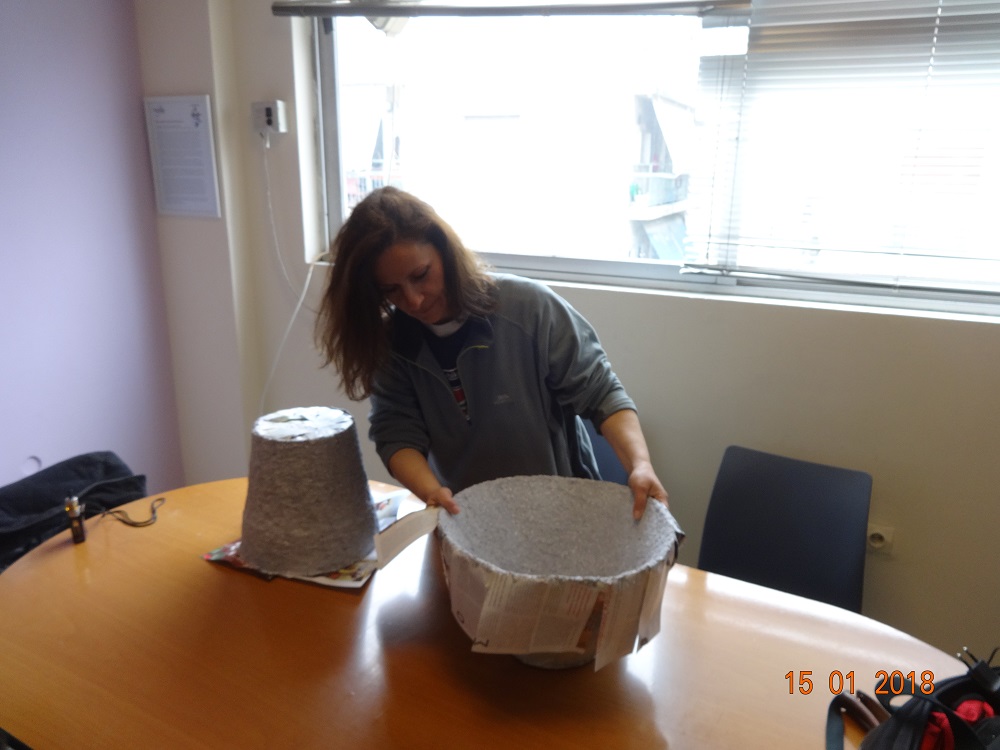
Upcycling
Shedia, Greece
Shedia’s Upcycling program uses paper from the leftover copies of their street paper to make beautiful, environmentally friendly objects to sell – from bags to rings to artwork. Workshops are held to teach people the skills of Upcycling and to embrace their artistic side. This year, a gallery/workshop space called Shediart will be opened to help the artists sell their wares.
Vanessa tells us more: “All the objects are made with a lot of fantasy and delight. Upcycling is very much different than selling the street paper. It is a more internal procedure and it combines many different skills.
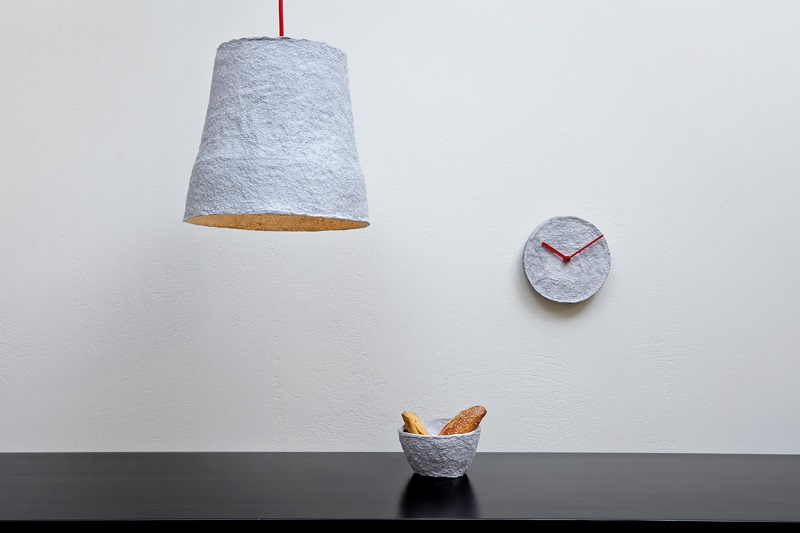
“The most important thing for me is that I cooperate with other people. We are all very different, but we work in a small room as a team and we have very good results because we all love what we do and we love Shedia.
“Through Upcycling I confirmed my idea that when you have patience and persistence you can achieve everything. Art, in all forms, needs hard work and dedication. It can be difficult and tiresome to transform paper into useful objects and it needs much time.
“The biggest challenge for me is to become faster, make more beautiful things and have more tolerance.
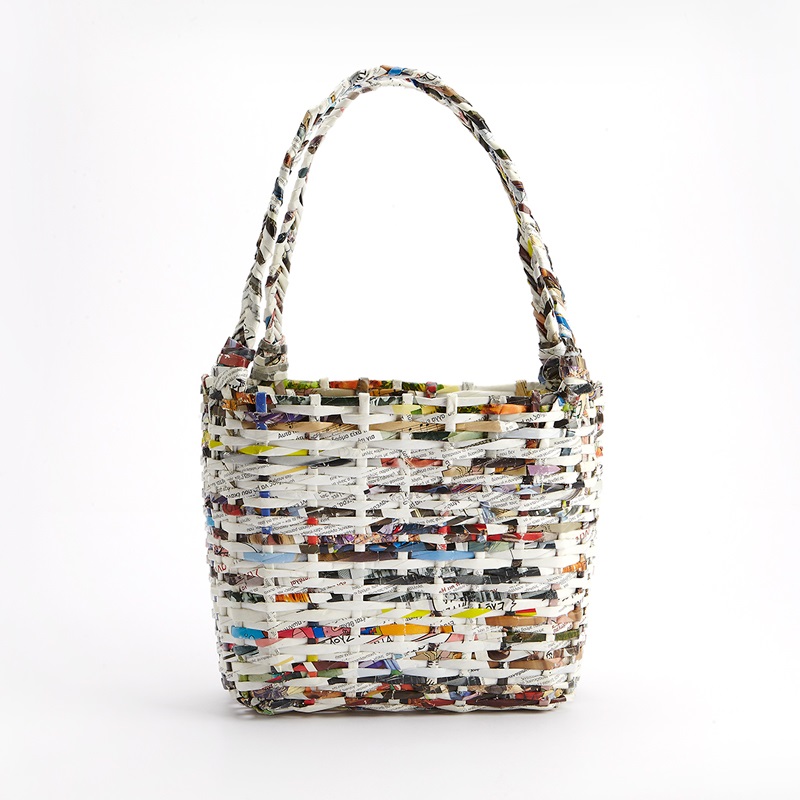
“The most special thing in Greece is the will of people, and their pride.
“I would like to see Upcycling being loved by the people, like Shedia, and for everybody to understand that Upcycling is something creative that supports us to improve our lives.”
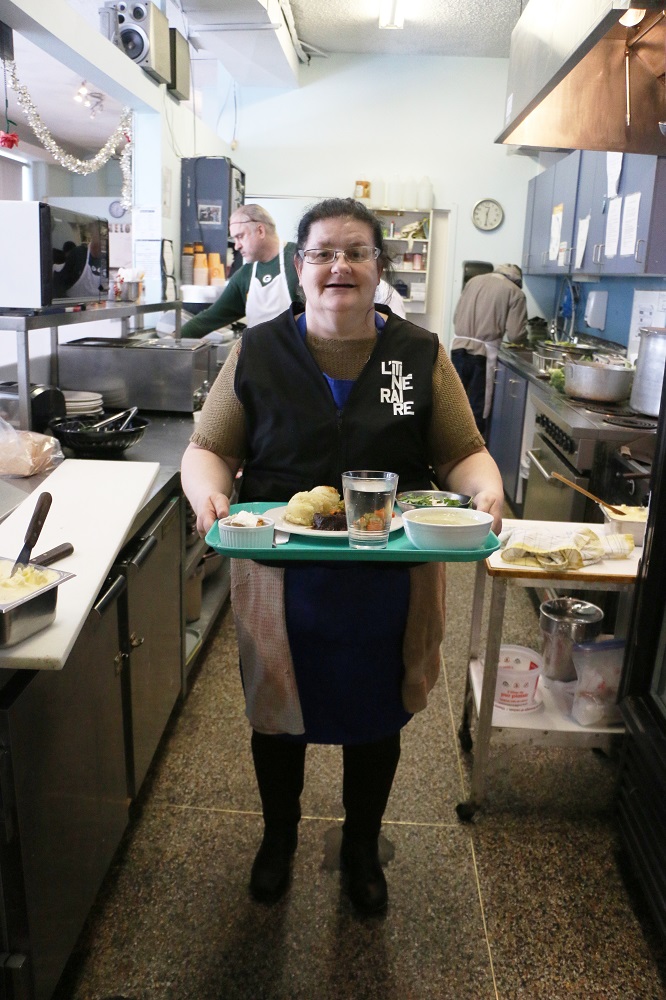
L’itinéraire Café
L’itinéraire, Québec
This cafeteria in Québec offers low-cost meals to vendors of L’Itinéraire street paper and other people in need. It also offers frozen meals that vendors can take home, and serves a free community meal once a month. Disadvantaged people work in the kitchen alongside volunteers, learning new skills and giving back to their community.
Diane tells us more: “When I sell the magazine, I’m in contact with customers. When I work in the cafe, I’m in contact with my colleagues (vendors) who are also my friends. I prefer working with my gang in the kitchen.
“Thanks to our cook, Mister Paul (a volunteer who has been working for the last 10 years), I learned new recipes. I am also responsible for the cash register, although I would like to improve my skills here, I still have a bit of difficulty calculating mentally the change I have to return (chuckle)! I’m really happy to have learned new skills!
“Everybody loves my soups, especially my cream of vegetable. I’m also proud to have learned how to bake good cookies.
“The cafe really changed my life! I meet a cafe full of people and I get to know them more and more. People like me a lot, and that feels really good.
I love Canada in general, and Québec in particular because people are friendly and uncomplicated.”
You can read more about what’s going on during #VendorWeek 2018 here.






